Livet er en morgengave, sjælen er et pilgrimskor.
Der står krokus i min have, der står øller på mit bord.
Under himlen hænger lærken som et fjernt bevinget frø,
for en lærke tænker hverken på at kæmpe eller dø.
Her er fredeligt og stille, her er ingen larm og støj.
Jeg har sået kruspersille, og et brev med pure løg.
Lad alverden slå for panden og bekæmpe spe med spot,
jeg vil enes med hinanden og mig selv og ha det godt.
Samson gik og styrted’ templer, Peter Freuchen knak sit ben.
Ak mod disse to eksempler er min dåd en sølle én.
Jeg har aldrig dræbt filistre eller kæmpet med en haj,
og når stærke mænd blir bistre, syn’s jeg det er synd for mig.
Der er nok som går og sysler med at sprænge kloden væk.
Jeg vil ikke ha skærmydsler og kanoner bag min hæk.
Mens de andre går og sveder for at gi hinanden lak,
vil jeg pusle med rødbeder, selleri og pastinak.
Jeg vil ikke slås med bisser, jeg vil så og ikke slå.
Selv de rødeste radiser kan man roligt lide på.
Der er nok af danske helte som er danske hele dag’n,
og går rundt og spænder bælte, mens de råber; Fy for Fan.
Tiden går og tiden hverver store mænd til mandig dåd.
Jeg reserven blandt reserver bryder ofte ud i gråd.
Jeg får nerver og migræne blot jeg skær’ mig på en dolk,
og vil hell’re slå min plæne, end slå løs på pæne folk.
Livet er en dejlig gave, jorden er en herlig jord.
der er øller i min mave, der står krokus på mit bord.
Når reserverne skal stille for at splitte kloden ad
skriver jeg med kruspersille verdens mindste heltekvad.
Der står krokus i min have, der står øller på mit bord.
Under himlen hænger lærken som et fjernt bevinget frø,
for en lærke tænker hverken på at kæmpe eller dø.
Her er fredeligt og stille, her er ingen larm og støj.
Jeg har sået kruspersille, og et brev med pure løg.
Lad alverden slå for panden og bekæmpe spe med spot,
jeg vil enes med hinanden og mig selv og ha det godt.
Samson gik og styrted’ templer, Peter Freuchen knak sit ben.
Ak mod disse to eksempler er min dåd en sølle én.
Jeg har aldrig dræbt filistre eller kæmpet med en haj,
og når stærke mænd blir bistre, syn’s jeg det er synd for mig.
Der er nok som går og sysler med at sprænge kloden væk.
Jeg vil ikke ha skærmydsler og kanoner bag min hæk.
Mens de andre går og sveder for at gi hinanden lak,
vil jeg pusle med rødbeder, selleri og pastinak.
Jeg vil ikke slås med bisser, jeg vil så og ikke slå.
Selv de rødeste radiser kan man roligt lide på.
Der er nok af danske helte som er danske hele dag’n,
og går rundt og spænder bælte, mens de råber; Fy for Fan.
Tiden går og tiden hverver store mænd til mandig dåd.
Jeg reserven blandt reserver bryder ofte ud i gråd.
Jeg får nerver og migræne blot jeg skær’ mig på en dolk,
og vil hell’re slå min plæne, end slå løs på pæne folk.
Livet er en dejlig gave, jorden er en herlig jord.
der er øller i min mave, der står krokus på mit bord.
Når reserverne skal stille for at splitte kloden ad
skriver jeg med kruspersille verdens mindste heltekvad.
Contributed by Riccardo Venturi - 2006/1/5 - 15:26
Language: Italian
A PROPOSITO DI EROI
La vita è un Morgengab1, l'anima è un coro di pellegrini.
Ci son crochi nel mio giardino, e birre sul mio tavolo.
Su nel cielo si libra l'allodola come un'antica donna alata,
Ché un'allodola questo pensa: o combattere, o morire.
Qui c'è pace, c'è silenzio; nessun rumore, nessun baccano.
Il prezzemolo ho seminato, e una bustina di cipolline.
L'universo si ammazzi pure, e combatta le sue scemenze,
io voglio andar d'accordo con tutti, con me stesso e stare bene.
Sansone andò e rovesciò templi, Peter Freuchen2 si spezzò una gamba3.
Beh, in confronto a 'sti due esempi, quel che fo è ben poca cosa.
Mai ho ammazzato filistei, o lottato contro uno squalo,
E quando i forti s'arrabbiano, mi sembra un peccato.
Già in troppi sono occupati a far saltare in aria il pianeta,
Io non voglio scaramucce e cannoni dietro la staccionata.
Mentre gli altri vanno e sudano per darsele l'un l'altro
Io voglio occuparmi delle barbabietole, del sedano e delle carote.
Non voglio battermi con dei mascalzoni, voglio seminare e non ammazzare.
Si può tranquillamente voler bene anche alle radici più rosse.
Ci sono abbastanza eroi danesi che son danesi tutto il giorno,
E che girano berciando tanto da slacciarsi la cintura: vadano in culo!
Il tempo passa, il tempo arruola i grand'uomini per i fatti da uomini.
Io, riserva tra le riserve, me ne scoppio spesso in pianto.
Divento nervoso, mi piglia il mal di testa non appena mi taglio con un temperino,
E preferisco tagliar l'erba del prato piuttosto che la vita della gente perbene.
La vita è un dono bellissimo, la terra è un posto magnifico.
Ci ho birre nello stomaco, e crochi sul mio tavolo.
Quando le riserve la smetteranno di distruggere il pianeta
Scriverò col prezzemolo il più piccolo canto eroico del mondo.
La vita è un Morgengab1, l'anima è un coro di pellegrini.
Ci son crochi nel mio giardino, e birre sul mio tavolo.
Su nel cielo si libra l'allodola come un'antica donna alata,
Ché un'allodola questo pensa: o combattere, o morire.
Qui c'è pace, c'è silenzio; nessun rumore, nessun baccano.
Il prezzemolo ho seminato, e una bustina di cipolline.
L'universo si ammazzi pure, e combatta le sue scemenze,
io voglio andar d'accordo con tutti, con me stesso e stare bene.
Sansone andò e rovesciò templi, Peter Freuchen2 si spezzò una gamba3.
Beh, in confronto a 'sti due esempi, quel che fo è ben poca cosa.
Mai ho ammazzato filistei, o lottato contro uno squalo,
E quando i forti s'arrabbiano, mi sembra un peccato.
Già in troppi sono occupati a far saltare in aria il pianeta,
Io non voglio scaramucce e cannoni dietro la staccionata.
Mentre gli altri vanno e sudano per darsele l'un l'altro
Io voglio occuparmi delle barbabietole, del sedano e delle carote.
Non voglio battermi con dei mascalzoni, voglio seminare e non ammazzare.
Si può tranquillamente voler bene anche alle radici più rosse.
Ci sono abbastanza eroi danesi che son danesi tutto il giorno,
E che girano berciando tanto da slacciarsi la cintura: vadano in culo!
Il tempo passa, il tempo arruola i grand'uomini per i fatti da uomini.
Io, riserva tra le riserve, me ne scoppio spesso in pianto.
Divento nervoso, mi piglia il mal di testa non appena mi taglio con un temperino,
E preferisco tagliar l'erba del prato piuttosto che la vita della gente perbene.
La vita è un dono bellissimo, la terra è un posto magnifico.
Ci ho birre nello stomaco, e crochi sul mio tavolo.
Quando le riserve la smetteranno di distruggere il pianeta
Scriverò col prezzemolo il più piccolo canto eroico del mondo.
NOTE alla traduzione
[1] Morgengab (danese: morgengave): letteralmente "dono del mattino". Nella tradizione dei popoli germanici (e particolarmente dei Longobardi), la sposa riceveva dallo sposo un dono al risveglio dopo la prima notte di nozze; per questo era chiamato anche, esplicitamente, pretium virginitatis. Mancando un adeguato termine italiano che abbia senso (esiste Morgengabio, ma suona discretamente ridicolo), ho preferito il termine tedesco che è di uso più comune. Nel diritto Longobardo, il Morgengab ebbe forza di legge tanto da essere regolamentato nell'Editto di Rotari (pubblicato alla mezzanotte tra il 22 e il 23 novembre 643, e che rappresenta il primo esempio nella storia di forte limitazione della pena di morte: cosa da non sottovalutare per un "barbaro"). Il Morgengab non era un dono simbolico: oltre ad essere immediatamente rappresentato da un oggetto prezioso (generalmente una croce d'oro), con il "dono del mattino" il marito donava alla moglie circa un terzo dei suoi beni.
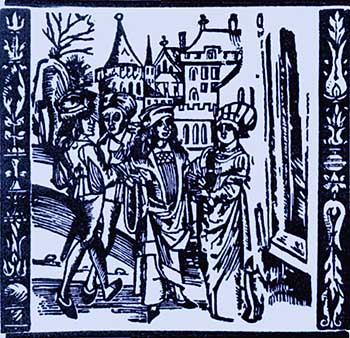
[2] Peter Freuchen (1886-1957) è stato un famoso esploratore e scrittore di viaggi danese. Sposò in prime nozze una donna Inuit, Navarana Mequpaluk, che morì nel 1921 durante l'epidemia di Spagnola; in seguito si sposò altre due volte. Visse a lungo in Groenlandia. Figura assolutamente poliedrica, fu un partigiano antifascista durante l'occupazione tedesca della Danimarca (finendo anche a lungo in carcere) e scrisse nel 1933 la sceneggiatura per il film Eskimo, che nel 1934 ottenne un Oscar nella prima edizione del premio. Nel 1956, un anno prima di morire, si presentò a un quiz televisivo americano, The $64,000 Question ("La domanda da 64.000 dollari") e vinse l'intera somma rispondendo sull'argomento "I sette mari".
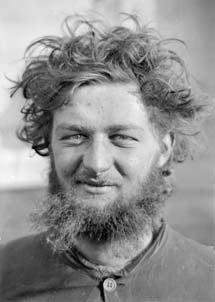
[3] In realtà Peter Freuchen non si "spezzò" la gamba: ne perse l'uso, nel 1926, per un grave congelamento durante una spedizione artica.
[1] Morgengab (danese: morgengave): letteralmente "dono del mattino". Nella tradizione dei popoli germanici (e particolarmente dei Longobardi), la sposa riceveva dallo sposo un dono al risveglio dopo la prima notte di nozze; per questo era chiamato anche, esplicitamente, pretium virginitatis. Mancando un adeguato termine italiano che abbia senso (esiste Morgengabio, ma suona discretamente ridicolo), ho preferito il termine tedesco che è di uso più comune. Nel diritto Longobardo, il Morgengab ebbe forza di legge tanto da essere regolamentato nell'Editto di Rotari (pubblicato alla mezzanotte tra il 22 e il 23 novembre 643, e che rappresenta il primo esempio nella storia di forte limitazione della pena di morte: cosa da non sottovalutare per un "barbaro"). Il Morgengab non era un dono simbolico: oltre ad essere immediatamente rappresentato da un oggetto prezioso (generalmente una croce d'oro), con il "dono del mattino" il marito donava alla moglie circa un terzo dei suoi beni.

Riccardo dona alla sposa Cassandra il Morgengab. Illustrazione cinquecentesca da Von gûten unnd bösen Nachbauren ("Dei buoni e dei cattivi vicini") di Georg Wickram, 1505-1562.
[2] Peter Freuchen (1886-1957) è stato un famoso esploratore e scrittore di viaggi danese. Sposò in prime nozze una donna Inuit, Navarana Mequpaluk, che morì nel 1921 durante l'epidemia di Spagnola; in seguito si sposò altre due volte. Visse a lungo in Groenlandia. Figura assolutamente poliedrica, fu un partigiano antifascista durante l'occupazione tedesca della Danimarca (finendo anche a lungo in carcere) e scrisse nel 1933 la sceneggiatura per il film Eskimo, che nel 1934 ottenne un Oscar nella prima edizione del premio. Nel 1956, un anno prima di morire, si presentò a un quiz televisivo americano, The $64,000 Question ("La domanda da 64.000 dollari") e vinse l'intera somma rispondendo sull'argomento "I sette mari".

Peter Freuchen.
[3] In realtà Peter Freuchen non si "spezzò" la gamba: ne perse l'uso, nel 1926, per un grave congelamento durante una spedizione artica.
Language: English
English translation / Engelsk oversættelse / Traduzione inglese / Traduction anglaise / Englanninkielinen käännös:
Holger Terp
Holger Terp
SOMETHING ABOUT HEROES
Life is a morning gift, the soul is a pilgrimage choir.
There is crocus in my garden, there is beer on my table.
Under the sky hangs the larch as a distant winged seed,
For a lark thinking neither to fight or to die.
Here is peaceful and quiet, here is no hustle and bustle.
I have sown parsley, and a letter with chives.
Let the world kill and fight and fight this with that,
I will agree with one another and myself and have it well.
Samson went and hurled temples, Peter Freuchen broke his leg.
Against these two examples my deed is a miserable one.
I have never killed Philistines or fought with a shark,
And when strong men becomes fierce, I think it's a pity for me
There's enough going and pursuits to blow up the globe.
I do not want skirmishes and guns behind my hedge.
While the others go and sweat to show who is the boss,
I want to puzzle with beetroot, celery and parsnip.
I will not fight with roughnecks, I will sow and not beat.
Even the reddish radishes can easily be trusted.
There are plenty of Danish heroes who are Danish all day,
And walking around and strapping belt as they shout; Get the fuck.
Time goes by and time recruits big men for manly deed.
I reserve to reserves often break into tears.
I get nerves and migraines just I cut myself on a dagger,
And will happily beat my lawn, than batter nice people.
Life is a wonderful gift, the earth is a glorious earth.
There are beers in my stomach, there are crocuses on my table.
When the reserves are asked to split the globe
I write with parsley the world's smallest heroic poem.
Life is a morning gift, the soul is a pilgrimage choir.
There is crocus in my garden, there is beer on my table.
Under the sky hangs the larch as a distant winged seed,
For a lark thinking neither to fight or to die.
Here is peaceful and quiet, here is no hustle and bustle.
I have sown parsley, and a letter with chives.
Let the world kill and fight and fight this with that,
I will agree with one another and myself and have it well.
Samson went and hurled temples, Peter Freuchen broke his leg.
Against these two examples my deed is a miserable one.
I have never killed Philistines or fought with a shark,
And when strong men becomes fierce, I think it's a pity for me
There's enough going and pursuits to blow up the globe.
I do not want skirmishes and guns behind my hedge.
While the others go and sweat to show who is the boss,
I want to puzzle with beetroot, celery and parsnip.
I will not fight with roughnecks, I will sow and not beat.
Even the reddish radishes can easily be trusted.
There are plenty of Danish heroes who are Danish all day,
And walking around and strapping belt as they shout; Get the fuck.
Time goes by and time recruits big men for manly deed.
I reserve to reserves often break into tears.
I get nerves and migraines just I cut myself on a dagger,
And will happily beat my lawn, than batter nice people.
Life is a wonderful gift, the earth is a glorious earth.
There are beers in my stomach, there are crocuses on my table.
When the reserves are asked to split the globe
I write with parsley the world's smallest heroic poem.
Contributed by Holger Terp - 2019/5/17 - 17:47
Language: Finnish
Traduzione finlandese / Finnish translation / Traduction finnoise / Finsk oversættelse / Suomennos: Juha Rämö
JOKUNEN SANA SANKAREISTA
Elämä on huomenlahja, sielu on pyhiinvaeltajien kuoro.
Puutarhassani on krookuksia, pöydälläni on olutta.
Taivaalla leijuu kiuru kuin kaukainen siivekäs siemen,
sillä kiuru ei ajattele taistelemista eikä kuolemaa.
Täällä on rauhallista ja hiljaista, täällä ei ole melua eikä melskettä.
Olen kylvänyt persiljaa ja pussillisen ruohosipulia.
Antaa mailman iskeä päätään seinään ja taistella tuulimyllyjä vastaan.
Minä haluan olla yhtä mieltä toisten ja itseni kanssa ja elää hyvää elämää.
Simson tuhosi temppeleitä, Peter Freuchen *) katkaisi jalkansa.
Näihin kahteen verrattuina minun tekoni ovat vähäisiä.
En ole koskaan tappanut filistealaisia enkä taistellut hain kanssa,
ja siinä missä vahvat miehet ovat hurjia, minä taidan olla pikemminkin säälittävä.
Maailman tuhoamiseksi on tekeillä yllin kyllin pahaa.
Minä en halua kahakoita ja tykkejä aitani taakse.
Kun muut vääntävät hiessä päin kättä siitä, kuka on kukin,
minä haluan puuhata punajuurien, sellerin ja palsternakan parissa.
En halua taistella öykkärien kanssa, haluan kylvää, en lyödä.
Jopa punertaviin retiiseihin on helppo luottaa.
On paljon tanskalaisia sankareita, jotka ovat tanskalaisia aamusta iltaan
ja kulkevat turuilla ja toreilla henkseleitään paukuttaen ja perkeleitä huutaen.
Aika kuluu ja aika kutsuu suuria miehiä miehisiin tekoihin.
Minä, joka olen reservien reservi, puhkean usein kyyneliin.
Hermostun ja pääni alkaa särkeä jo kun saan puukosta haavan sormeeni.
Ja mieluummin minä käyn nurmikkoni kuin mukavien ihmisten kimppuun.
Elämä on ihmeellinen lahja, maailma on suurenmoinen maailma.
Vatsassani on olutta, pöydälläni on krookuksia.
Kun reservit komennetaan panemaan maailma palasiksi,
minä kirjoitan persiljalla maailman lyhimmän sankarirunon.
Elämä on huomenlahja, sielu on pyhiinvaeltajien kuoro.
Puutarhassani on krookuksia, pöydälläni on olutta.
Taivaalla leijuu kiuru kuin kaukainen siivekäs siemen,
sillä kiuru ei ajattele taistelemista eikä kuolemaa.
Täällä on rauhallista ja hiljaista, täällä ei ole melua eikä melskettä.
Olen kylvänyt persiljaa ja pussillisen ruohosipulia.
Antaa mailman iskeä päätään seinään ja taistella tuulimyllyjä vastaan.
Minä haluan olla yhtä mieltä toisten ja itseni kanssa ja elää hyvää elämää.
Simson tuhosi temppeleitä, Peter Freuchen *) katkaisi jalkansa.
Näihin kahteen verrattuina minun tekoni ovat vähäisiä.
En ole koskaan tappanut filistealaisia enkä taistellut hain kanssa,
ja siinä missä vahvat miehet ovat hurjia, minä taidan olla pikemminkin säälittävä.
Maailman tuhoamiseksi on tekeillä yllin kyllin pahaa.
Minä en halua kahakoita ja tykkejä aitani taakse.
Kun muut vääntävät hiessä päin kättä siitä, kuka on kukin,
minä haluan puuhata punajuurien, sellerin ja palsternakan parissa.
En halua taistella öykkärien kanssa, haluan kylvää, en lyödä.
Jopa punertaviin retiiseihin on helppo luottaa.
On paljon tanskalaisia sankareita, jotka ovat tanskalaisia aamusta iltaan
ja kulkevat turuilla ja toreilla henkseleitään paukuttaen ja perkeleitä huutaen.
Aika kuluu ja aika kutsuu suuria miehiä miehisiin tekoihin.
Minä, joka olen reservien reservi, puhkean usein kyyneliin.
Hermostun ja pääni alkaa särkeä jo kun saan puukosta haavan sormeeni.
Ja mieluummin minä käyn nurmikkoni kuin mukavien ihmisten kimppuun.
Elämä on ihmeellinen lahja, maailma on suurenmoinen maailma.
Vatsassani on olutta, pöydälläni on krookuksia.
Kun reservit komennetaan panemaan maailma palasiksi,
minä kirjoitan persiljalla maailman lyhimmän sankarirunon.
* ) Peter Freuchen (1886 - 1957) oli tunnettu tanskalainen tutkimusmatkailija ja kirjailija. Toisin kuin laulun tekstissä sanotaan, hän ei katkaissut jalkaansa vaan menetti vasemman jalkansa sen jälkeen, kun oli palelluttanut sen pahoin 54 asteen pakkasessa.
Contributed by Juha Rämö - 2019/5/23 - 17:15
×
![]()
Note for non-Italian users: Sorry, though the interface of this website is translated into English, most commentaries and biographies are in Italian and/or in other languages like French, German, Spanish, Russian etc.

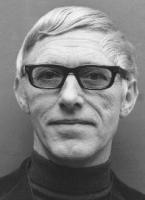
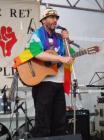


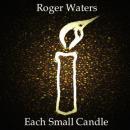
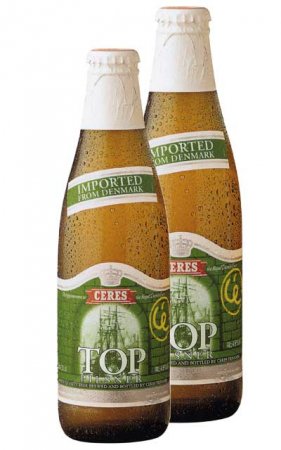
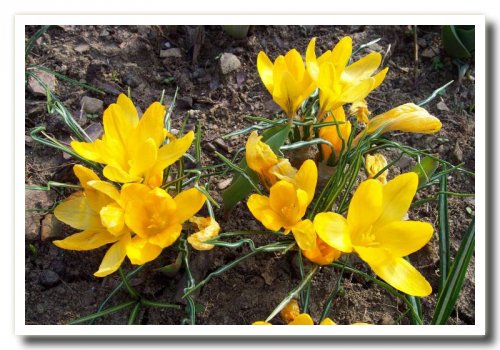
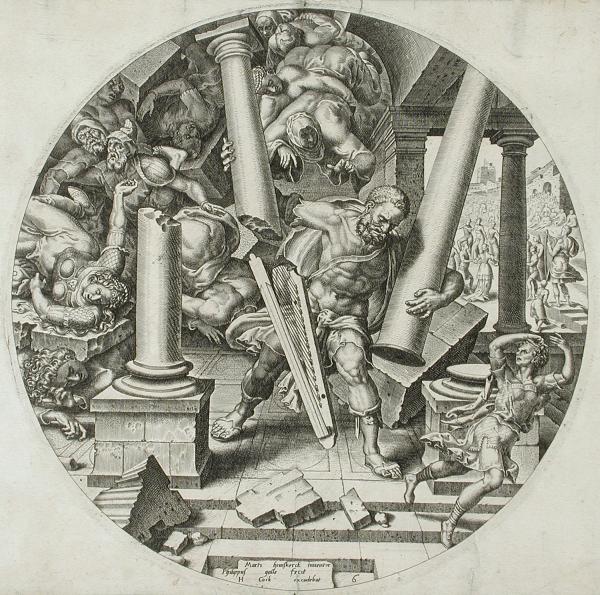
Poesia di Halfdan Wedel Rasmussen
A poem by Halfdan Wedel Rasmussen
Musica di Mogens Jermiin Nissen (1906-1972), Noget om helte (1957)
Music by Mogens Jermiin Nissen (1906-19729, (1906-1972), Noget om helte (1957)
Interpretata da Otto Brandenburg (1989)
Performed by Otto Brandenburg (1989)
Halfdan Wedel Rasmussen, nato a Copenaghen il 29 gennaio 1915 e morto il 2 marzo 2002, è stato un noto e prolifico poeta e scrittore danese. "Noget om helte" ("A proposito di eroi") è senz'altro una delle sue poesie più note. Durante l'occupazione nazista della Danimarca fu un attivo resistente e partigiano; divenne in seguito un attivista per i diritti umani. Celebri sono le sue poesie intitolate Noget om... ("A proposito di..." oppure "Qualcosa su..."), di cui anche questa fa parte; molte di esse (come questa) furono messe in musica dallo scrittore e poeta (prevalentemente per bambini) Mogens Jermiin Nissen, che fu anche il traduttore di Lewis Carroll in lingua danese. La canzone è stata poi interpretata, nel 1989, dal celebre folksinger danese Otto Brandenburg, scomparso nel 2007. A titolo di curiosità, ricordiamo che il nome dell'autore, Halfdan è uno dei più antichi nomi danesi, e risale direttamente all'epoca vichinga. Curiosamente, significa "danese a metà" o "mezzo danese". Ai tempi del Danelaw inglese, era portato (nella forma Halfdane o Halfdæn da molti individui di provenienza "mista", scandinava e anglosassone (all'epoca "danese" stava genericamente per "scandinavo", e la lingua nordica antica era chiamata dönsk tunga. [CCG/AWS Staff]
From: www.bludo.dk, the website of the Richardt family from Espergærde, Danish pacifists and ecologists. One of the best known and most celebrated Danish peace songs. According to our Danish friend and collaborator Holger Terp's note, the original poem by Halfdan Rasmussen was published by the daily newspaper Politiken on April 17, 1955.
Halfdan Wedel Rasmussen, born in Copenhagen on January 29, 1915 and deceased on March 2, 2002, was a prolific poet and writer of high renown in his native country. ”Noget om helte” (”About heroes” or ”Something about heroes”) is no doubt one of his best known poems. During the German occupation of Denmark, Halfan Rasmussen was an active Resistance member and partisan, to become later engaged in the civil rights movement. Widely known are his poems bearing the title of Noget om... (”About...” or ”Something about...”), just as this one included here; several of them were set to music by the writer and poet (mostly for children) Mogens Jermiin Nissen who also translated Lewis Carrol into Danish. The song has been performed (1989) by the famous Danish folksinger Otto Brandenburg, died in 2007. Just as a curiosity, we remind that the author's name, Halfdan belongs to the oldest Danish names and traces back its origin to the Viking period. Rather curiously, it means ”Half Dane”. This name was usually borne in the Danelaw by several people of ”mixed” origin, Scandinavian and Anglo-Saxon (at that time ”Dane” and ”Danish” generally meant ”Scandinavian”, and the Old Norse language was commonly called dönsk tunga). [AWS/CCG Staff]